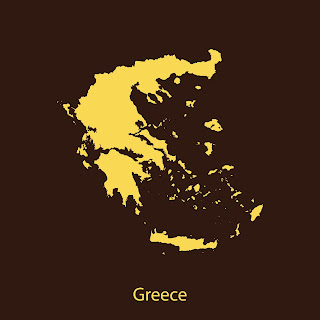- Mr
Burns, inform us, please, regarding Eldorado’s Gold presence in Greece which
point of your business plan has been already reached and what critical issues
remain unsolved?
We have invested approximately US$1.0 billion in Greece
since 2012 in developing the Olympias and Skouries assets and currently have
just over 2,200 employees in the country.
We have spent in excess of US$100 million in reclamation and
rehabilitation activities to address legacy environmental issues pertaining to
previous operators of the Kassandra Mines in Halkidiki. The refurbished mill at Olympias is currently in
commissioning and we expect commercial production by the end of 2017. At
Skouries, we have been hampered by permitting delays, but the project is approximately
60% complete.
Capital invested in Greece has primarily paid our Greek
employees and contractors in the form of wages, our suppliers of goods and
services and the government in the form of taxes. This has been a tremendous boost to the Greek
economy during a very difficult period for the country.
 - Eldorado Gold Corporation has invested in Greece since
2012. What were the reasons for choosing Chalkidiki and what do you think are now
the obstacles for progressing in your investment? Are there any
responsibilities for delays in Greek government or in your company’s plan?
- Eldorado Gold Corporation has invested in Greece since
2012. What were the reasons for choosing Chalkidiki and what do you think are now
the obstacles for progressing in your investment? Are there any
responsibilities for delays in Greek government or in your company’s plan?
Chalkidiki has a long mining
tradition dating back to the time of Alexander the Great. The prospectivity of the region, labour
availability, and the quality of the current assets in Chalkidiki, all
attracted the Company to the area.
The delays in obtaining regular,
routine permits for our development projects is the major obstacle we are
currently facing.
- Do you think there are any hidden incentives behind the present
stalemate in your investment in Skouries and Olympiada?
The government of Greece has
continually appealed to the global capital markets that it is open for business;
however the continual delays in issuing routine permits, which is their
contractual obligation, suggests otherwise.
- According to your engagement with the present Greek
government insofar you would characterized the latter as hostile, friendly or
neutral towards your investment?
We very much wish to develop a productive
working relationship with the current Greek Government – this is our approach
to operating in all jurisdictions. As a Canadian company with global
operations, we share the same goals with Greek government, which is to develop
mines responsibly, implement best available technologies and respect the local
communities and environment.
- How you characterize the arbitration initiative of Greek
government?
We understand that arbitration is
a normal process in Greece for finding common ground between two parties. We hope that this is where this process ends
up and we are able to move forward with this significant investment that will
benefit the people of Greece.
- From a financial perspective, explain us the cost for
Eldorado Gold from the successive delays in Greece? How many funds have been lost by the company
and Greece as well?
There have been significant costs
associated the constant and ongoing permitting delays. Unfortunately our
lawyers have advised that we cannot be more specific than that at this time.
 - Under
present circumstances, what are the next steps for Eldorado’s management team
in Greece? Are you thinking of getting
out of your investment in Chalkidiki?
- Under
present circumstances, what are the next steps for Eldorado’s management team
in Greece? Are you thinking of getting
out of your investment in Chalkidiki?
Eldorado Gold is committed to building both the Olympias and
Skouries projects in Greece, but cannot continue to do so without the routine
permits that are currently outstanding. Eldorado has a commitment to its
shareholders to allocate their capital prudently. As such, Eldorado is
currently evaluating its capital spend plans in the country.
- If mining runs smoothly what is your long-term business
plan for Greece and explain us the benefits for the company and for Greece?
Currently the mineral sector
represents approximately only 3% of Greece’s Gross Domestic Product (GDP). Given the Country’s rich mineral endowment,
it is not hard to imagine the mineral sector of Greece at 7% of GDP if the
right policies were implemented. This
would represent a significant boost to the Greek economy in terms of investment,
job creation, taxes to the government and export revenues.
If Hellas
Gold and Thracean Gold, our two subsidiaries in Greece, were able to proceed
according to plans, they would be among the largest employers and exporters in
Greece, with approximately 3,000 direct employees and contractors. Export revenues could be approximately US$500
million per year depending on metal prices and taxes and royalties could be
almost US$1 billion over the course of the mines’ lives.



